On September 14…
“People of many faiths are gathered to say to this nation and to the world for those who have lost their lives—innocent lives, in unspeakable tragedy, and through horrible violence visited on this nation – that those of us who are gathered here – Muslim, Jew, Christian, Sikh, Buddhist, Hindu – indeed, all people of faith – know that love is stronger than hate and that love lived out in justice will, in the end, prevail.”
~The Rt. Rev. Jane Holmes Dixon
Washington National Cathedral
National Day of Prayer and Remembrance
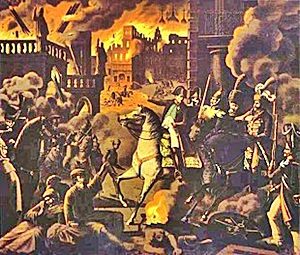
1812 – The Great Fire of Moscow began as Napoleon approached the city after the Battle of Borodino.
The prevailing theory behind the fire is that Count Fyodor Vasilyevich Rostopchin, the Governor-General of Moscow, gave orders to have the Kremlin and major public buildings (including churches and monasteries) either blown up or set on fire.
The damages were staggering. 6,500 of 9,100 private houses were destroyed along with 8,250 retail shops and warehouses and 122 churches.
Napoleon and his Grande Armée spent over a month in Moscow, hoping the Czar would respond to the French peace offers. After these efforts failed, the French set out on October 19 and began their epic – and disastrous – retreat over the famous Russian winter.
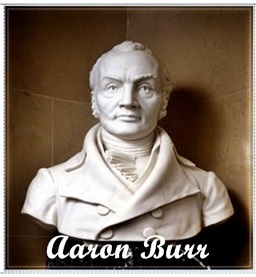
1836 – Aaron Burr died from complications of a stroke. He was 80.
He served as Vice President in the administration of President Thomas Jefferson. Nearing the end of his term, he challenged Alexander Hamilton, the former Secretary of the Treasury, to a duel for besmirching his reputation.
On the morning of July 11, 1804, Burr shot Hamilton (who died the following day) in their infamous duel at Weehawken, New Jersey. Burr was charged with murder in New York and New Jersey, but neither charge reached trial and he was able to complete his vice-presidential term.
In 1807, he was brought to trial on charges of conspiracy for leading a military charge against Spanish Territory and for trying to separate territories from the United States. He was acquitted of the charges but the conspiracy scandal ended his political career.
Karma Factoid: At the of age 77, Burr married Eliza Jumel, a wealthy widow who was 19 years younger. Soon after the marriage, she realized her fortune was dwindling due to Burr’s land speculation losses.
She separated from Burr after four months of marriage. The divorce was officially completed on September 14, 1836, the day of Burr’s death … but here’s the “Karma” part…
Her divorce lawyer was … Alexander Hamilton Jr.
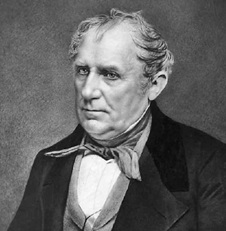
1851 – Author James Fenimore Cooper died one day before his 62nd birthday.
One of the most popular 19th-century American authors, his lasting reputation today rests largely upon the five epic Leatherstocking tales; The Prairie, The Pioneers, The Pathfinder, The Last of The Mohicans, and The Deerslayer.
Inspiration Factoid: My love of history came from reading the collected works of three authors; World War II historian William L. Shirer, Civil War historian Shelby Foote, and most definitely James Fenimore Cooper.
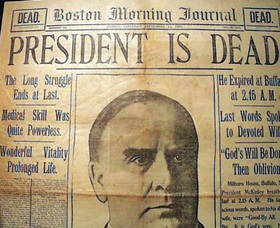
1901 – President William McKinley died eight days after being shot by Leon Czolgosz, a deranged anarchist, during the Pan-American Exposition in Buffalo, New York.
Czolgosz had shot McKinley twice at close range. One bullet deflected off a suit button, but the other entered his stomach, passed through the kidneys, and lodged in his back. When he was operated on, doctors failed to find the bullet, and gangrene soon spread throughout his body.
Czolgosz was convicted of murder and executed on October 29, 1901.
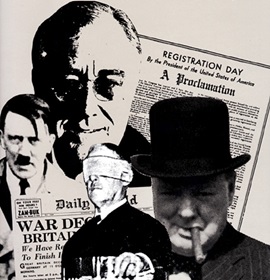
1940 – Congress passed the Selective Training and Service Act, providing for the first peacetime draft in U.S. history. President Franklin Roosevelt signed it two days later.
The act required all men between the ages of 21 and 36 to register for the draft. If drafted, a man would serve on active duty for 12 months, and then in a reserve component for 10 years or until he reached the age of 45, whichever came first.
Although the United States was not at war, many government officials believed the U.S. would eventually be drawn into one. With the fall of France to the Nazis in June 1940, Americans were growing uneasy about Great Britain’s ability to defeat Germany on its own.
Postscript: By the early summer of 1941, President Roosevelt asked the U.S. Congress to extend the term of duty for the draftees beyond twelve months to a total of thirty months, plus any additional time that he could deem necessary for national security.
The House of Representatives approved the extension by a single vote; while the Senate approved it by a large margin.
After the U.S. entered World War II, amendments to the Selective Training and Service Act on December 20, 1941, made all men between the ages of 20 and 44 liable for military service, and required all men between the ages of 18 and 64 to register.
Another amendment signed on November 13, 1942, called on all 18- and 19-year-olds to register for military service.
From 1940 until 1947 – when the wartime Selective Training and Service Act expired after extensions by Congress – over ten million men were inducted.
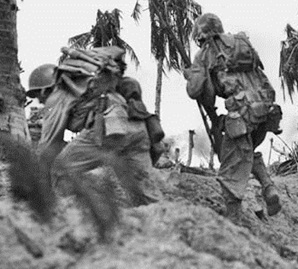
1944 – The U.S. 1st Marine Division landed on the island of Peleliu, one of the Palau Islands in the Pacific, as part of a larger operation to provide support for Gen. Douglas MacArthur, who was preparing to invade the Philippines. The cost in American lives would prove historic.
Within one week of the invasion, the Marines lost 4,000 men. By the time it was all over, that number would surpass 9,000. The Japanese lost more than 13,000 men. Flamethrowers and bombs finally subdued the island for the Americans.
In the end, MacArthur invaded the Philippines without need of Army or Marine protection from Peleliu so the loss of American lives proved pointless.

1955 – Little Richard recorded Tutti Fruitti (with Fats Domino’s band providing the backing music) at J & M Studio in New Orleans.
Released on the Specialty label, the record entered the Billboard Rhythm and Blues chart at the end of December 1955 and rose to #2 early in February 1956. It also reached #21 on the Billboard pop chart.
I won’t bother getting into the details of the original lyrics other than to say they were, um, overtly sexual.

1959 – The Soviet space probe Luna 2 became the first man-made object to reach the moon as it crashed onto the lunar surface.
The object, weighing 858.4 pounds, crashed into the moon at a speed of about 7,500 miles an hour.
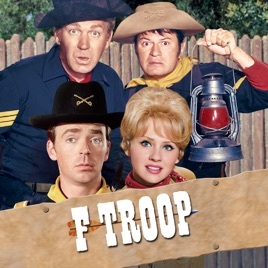
1965 – F Troop premiered on ABC.
Featuring co-stars Forrest Tucker (Sgt. Sylvester O’Rourke), Ken Berry (Capt. Wilton Parmenter), Larry Storch (Cpl. Randolph Agarn) amd Melody Patterson (Wrangler Jane), the satirical television sitcom about U.S. soldiers and American Indians in the Wild West during the 1860s aired for two seasons with a total of 65 episodes.
Wrangler Factoid: Patterson was only 15 when she auditioned for the role of Wrangler Jane, with the help of a forged birth certificate that indicated her age was 18.
By the time cameras started rolling, the California girl had turned 16. Because of her youth, producers held off on developing her character’s romance with the naive Captain Parmenter until the second season, though by the time the series wrapped, she was still just 18.
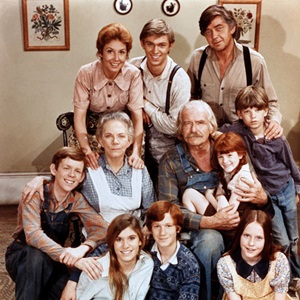
1972 – The Waltons premiered on CBS.
Following the airing of a television movie (The Homecoming: A Christmas Story on December 19, 1971, CBS ordered one season of episodes.
The series – starring Richard Thomas, John Waite, Michael Learned, Will Geer, and Ellen Corby (and a seemingly endless group of children) – was a massive success and subsequently aired on for nine seasons.
After the series was canceled by CBS in 1981, NBC aired three television movie sequels in 1982, with three more in the 1990s on CBS.
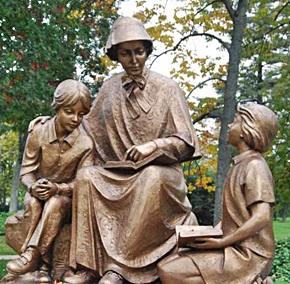
1975 – Elizabeth Ann Seton – founder of the United States’ first religious order (The Sisters of Charity of St. Joseph) was canonized by Pope Paul VI at the Vatican in Rome, becoming the first American-born Catholic saint.

1978 – Mork & Mindy premiered on ABC.
A spin-off after a highly successful episode of Happy Days, it starred Robin Williams as Mork, an extraterrestrial who came to Earth from the planet Ork in an egg-shaped spaceship.
Pam Dawber co-starred as Mindy McConnell, his human friend and roommate, and later his wife and the mother of his child.
The program aired for four seasons.

1982 – Princess Grace of Monaco died at the age of 52 from injuries suffered after her car plunged off a mountain road near Monte Carlo.
The American-born former film star Grace Kelly, her movie credits included Rear Window, To Catch A Thief, Dial M For Murder and The Country Girl, which won her a Best Actress Academy Award.
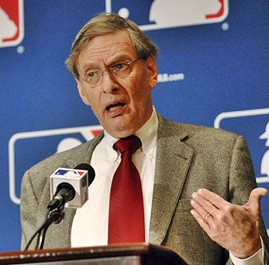
1994 – Following a four-week strike by Major League baseball players, commissioner Bud Selig called off the rest of the 1994 baseball season, including the World Series.
Selig acknowledged that the strike had torn an irreparable hole in the game’s fabric. The move to cancel the rest of the season meant the loss of $580 million in ownership revenue and $230 million in player salaries.
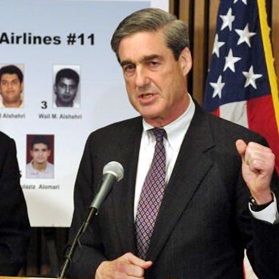
2001 – Within minutes of the September 11 attacks, the Federal Bureau of Investigation had opened the largest FBI investigation in United States history.
On this date, just three days after the hijacking of American Airlines Flight 11, United Airlines Flight 175, American Airlines Flight 77, and United Airlines Flight 93, the FBI announced the names of the 19 people they declared were the hijackers involved.
And the head of the department was a guy who is in the news all these years later … for another reason.
Robert Mueller – who had been FBI Director for only a week before the attacks – said he had “a fairly high level of confidence” that the FBI knew the names of the hijackers The suspects were, according to FBI statements, quickly identified because few made any attempt to disguise their names on flight and credit card records.
They were also among the few non-U.S. citizens and nearly the only passengers with Arabic names on their flights, enabling the FBI to identify them using such details as dates of birth, known or possible residences, visa status, and specific identification of the suspected pilots.
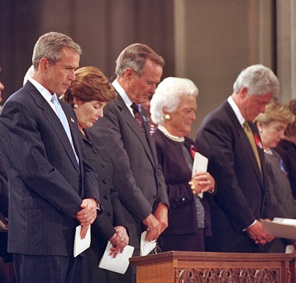
2001 – A National Prayer Service held at Washington National Cathedral for victims of the September 11 attacks was led by Rev. Billy Graham, with President George W. Bush and past and present top officials in attendance.
A memorial service was held on Parliament Hill in Ottawa, which Canadian Prime Minister Jean Chrétien presided over. More than 100,000 people attended.
In fact, church and memorial services were held throughout the world. They include a special service held in London, which was attended by Queen Elizabeth and 1,500 mourners. A three-minute silence at noon was observed throughout Europe.
The Star-Spangled Banner was sung in front of the Brandenburg Gate in Berlin and at mass gatherings in Edinburgh and Paris. National days of mourning were observed in Ireland and South Korea.

2001 – President George Bush stood at Ground Zero where the ruins of the twin towers of the World Trade Center were still smoldering.
As he conducted his tour, Bush suddenly climbed on top of the remnants of a burned fire truck and put his arm around firefighter Bob Beckwith. The president grabbed a bullhorn and started thanking the firefighters and other first responders at the scene, telling them that they were in the country’s prayers.
Someone in the crowd shouted that he couldn’t hear the president, and Bush replied: “I can hear you! The rest of the world hears you! And the people who knocked these buildings down will hear all of us soon.”
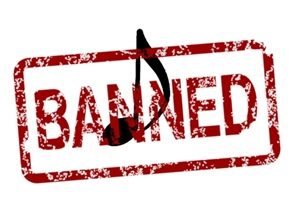
2001 – Following the September 11 attacks, Clear Channel Communications (now iHeartMedia), the largest owner of radio stations in the United States, circulated an internal memo containing a list of songs that program directors felt were “lyrically questionable” to play in the aftermath of the attacks.
Among the 165 “suggestions” – although stations were still free to make their own programming decisions, with the list only intended as advisory information – were Jet Airliner (Steve Miller Band), Dust In The Wind (Kansas), Knockin’ On Heaven’s Door (Bob Dylan), Eve of Destruction (Barry McGuire), Hit Me With Your Best Shot (Pat Benatar), Bennie and The Jets (Elton John), I Go To Pieces (Peter & Gordon), Free Fallin’ (Tom Petty), Another One Bites The Dust (Queen), Burning Down The House (Talking Heads), Leaving On A Jet Plane (John Denver), Ticket To Ride (Beatles), Wipeout (Surfaris), and Jump (Van Halen).
Some songs got nixed for “excessively positive” sentiments: Martha and the Vandellas’ Dancing In The Streets, Sam Cooke’s Wonderful World, Louis Armstrong’s What A Wonderful World, and Frank Sinatra’s New York, New York.
Several other songs, including Bruce Springsteen’s War, and John Lennon’s Imagine, were also on that list, as if being in favor of peace was a political point of view that was suddenly “questionable.”
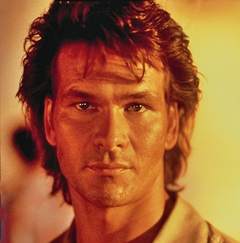
2009 – Actor Patrick Swayze died of pancreatic cancer at the age of 57.
Swayze starred in Dirty Dancing, Ghost, Road House, To Wong Foo, Thanks for Everything! Julie Newmar, North And South, and many others.
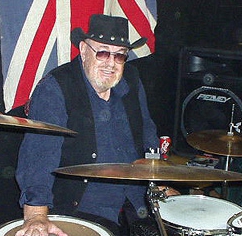
2009 – Bobby Graham (British session drummer) died of cancer at the age of 69.
Graham did more than play a part in recording over 1,500 songs; he also replaced many of his more famous contemporaries on their records. Check out just a few examples:
You Really Got Me and All Day And All Of The Night (Kinks), We Gotta Get Out Of This Place (Animals), Here Comes The Night (Them), Glad All Over, Any Way You Want It and Can’t You See That She’s Mine (Dave Clark Five), Can’t You Hear My Heartbeat (Herman’s Hermits), You’ve Got Your Troubles (Fortunes) and Tobacco Road (Nashville Teens).
Compiled by Ray Lemire ©2019 RayLemire.com / Streamingoldies.com. All Rights Reserved.